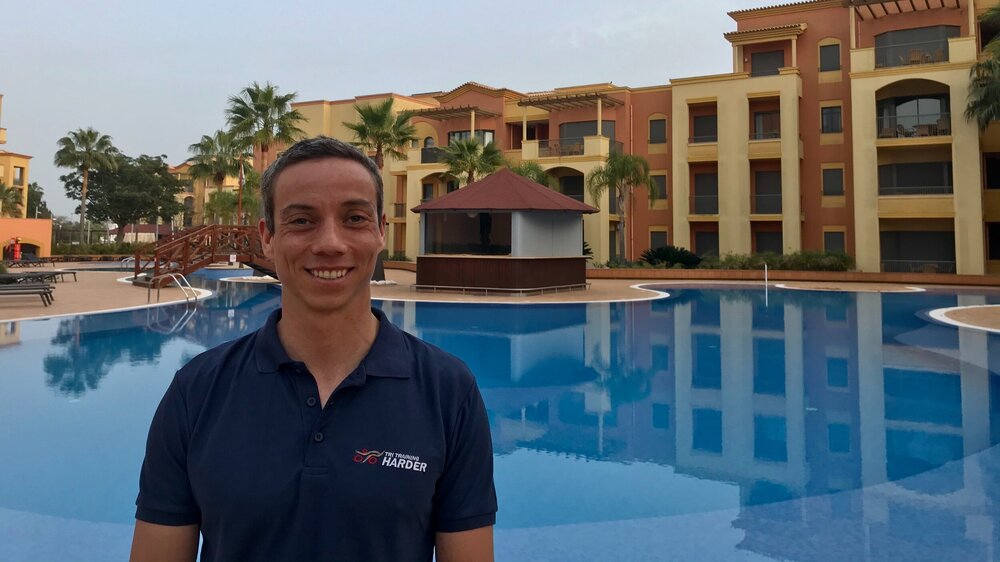What if I don’t sleep before my race?!
Ever feel yourself lying in bed, restless, the night before a big competition? “What if I don’t sleep at all?! Will my race be ruined!?”
In this blog, Coach Jon aims to find out whether lack of sleep the night before a big race really matters.
Increasingly, we are realising the importance of sleep for both our long term health and sporting performance. However, what evidence is there regarding skipping one night of sleep? Does it matter? Pre-race nerves, adrenaline and early morning alarms all make it difficult to get a good night's sleep before a big race. Worrying that you aren’t going to sleep, ‘sleep anxiety’, makes things even worse. What difference will one missed night's sleep make to your performance? Let’s take a look.
A 2009 study found that athletes who ran a treadmill test after staying up for 30 hours experienced decreased endurance performance, however, the study concluded that the lowered performance was likely more psychological than physiological. One sleepless night seemed to alter the athlete’s perception of effort, not their physical output.
Similarly, this study found that short-term sleep deprivation does not affect aerobic or anaerobic performance capability or muscular strength performance of individuals. However, they suggest that time to exhaustion was decreased by sleep deprivation. This was thought to be due to the rating of perceived exertion being affected by sleep deprivation (in this study these athletes were deprived of sleep for 30- 60 hours).
The same study found strong evidence to suggest that lack of sleep can lengthen reaction time the next day. This increases the importance of a good night sleep pre-event for athletes where quick reactions are key. Clearly, this is more of a priority for track and field athletes and players in ball or team sports than Ironman athletes, but if you are going to be riding your bike around a technical course, you do need to be able to react quickly.
Perhaps more relevant for endurance athletes, researchers have found that sleep deprivation can alter glucose controlling hormone levels in the body. This study found that one entirely sleepless night adversely affected metabolism, however, having only 4.5 hours of sleep did not have any statistically significant effects. This could be a concern for endurance athletes, but more research is needed.
In conclusion, it seems that a complete lack of sleep the night before a race (leading to an awake time of over 24 hours) may alter your perception of effort and possibly slow down your reaction times. Even then, your physical performance in terms of numbers will be unaffected. If you can grab a few hours of sleep the night before your event then the aforementioned effects will be unlikely to hold you back at all. With very little evidence of any negative effects, it’s simply not worth worrying about, rather, as long as you generally prioritise your sleep with long term good sleeping habits - don’t fret on ‘race eve’, lie back and drift off knowing that you are going to be good to go on race day no matter how restless you might feel.
If, after reading this blog, you are already wondering how to get the best night sleep before your race, check out my top tips for a good night sleep before race day.

Jon has been coaching with his local triathlon club in Hertfordshire around his full-time job as an airline pilot for several years. Unfortunately, Jon lost his pilot’s licence for 11 months in 2019 due to being diagnosed with testicular cancer (read his story here). He used the time off from flying to complete his Level 2 and Level 2 BTF diploma qualifications as well as a L3 Personal Trainer qualification. With his new coaching qualifications under his belt, Jon was able to join Tri Training Harder as a coach in 2019. He has now recovered from cancer, started flying again and is training hard for the coming triathlon season.
Jon has a flexible approach to coaching and training, from his own busy lifestyle he knows how to balance training around family, friends and social commitments. Jon loves to utilise the knowledge gained on his Personal Trainer course and finds incorporating well-structured strength and conditioning sessions vital to triathlon performance.
Visit Jon's
Coach profile
We’re here to help
Tri Training Harder are one of the leading Triathlon coaching providers in the UK, using our wealth of experience to unite scientific and technological research with already well-established and successful best practices, to create a formula for triathlon and endurance coaching that works.
The result is an honest, dynamic, yet simple new way of constructing an athlete’s training to allow them to reach their potential.
If you’re planning your next season, just starting out in the sport or are looking for extra guidance at the very top end of the field, we are here to help, and our coaches would be delighted to hear from you. You can contact us via the website, and one of the team will be in touch.

